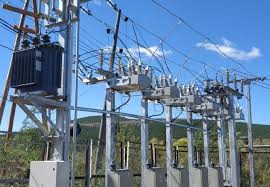Electrical faults and blackouts can significantly disrupt daily life and business operations. These power interruptions can lead to financial losses, productivity declines, and safety hazards.
To minimize the impact of these disturbances, utilities employ advanced technologies such as reclosers. These devices are designed to automatically detect, isolate, and restore power to affected areas, thereby enhancing power system reliability.
What Is A Recloser?
A recloser is a type of electrical switchgear designed to automatically interrupt and restore power on a distribution line. It consists of several key components, including:
- Circuit Breaker
Interrupts the flow of current during a fault.
- Control Unit
Monitors the line conditions and initiates the reclosing sequence.
- Motor Operator
Mechanically operates the circuit breaker.
Reclosers are available in various types, including mechanical, hydraulic, pneumatic, and electronic. Electronic reclosers are the most advanced type, offering precise control, rapid operation, and advanced features like remote monitoring and control.
How A Recloser Works
When a fault occurs on a distribution line, the recloser’s sensors detect the abnormal condition. The control unit then initiates a rapid sequence of operations:
- Fault Detection
The recloser detects the fault by monitoring voltage, current, and other parameters.
- Circuit Interruption
The circuit breaker opens, isolating the faulted section of the line.
- Reclosing Attempt
After a brief interval, the recloser attempts to reclose the circuit.
- Multiple Reclosures
If the fault is transient, the recloser may attempt multiple reclosures to restore power.
- Lockout
If the fault persists, the recloser locks out the faulted section, preventing further attempts to reclose.
The Role Of Reclosers In Power System Reliability
Reclosers play a crucial role in enhancing power system reliability by:
- Automatic Fault Detection and Isolation
Reclosers quickly detect and isolate faults, preventing them from spreading to other parts of the system.
- Rapid Reclosure to Restore Power
By rapidly reclosing the circuit, reclosers minimize outage duration, reducing customer inconvenience.
- Minimizing Outage Duration
By automatically restoring power, reclosers reduce the frequency and duration of power outages.
- Reducing Maintenance Costs
Reclosers can reduce maintenance costs by automatically isolating faults and minimizing the need for manual intervention.
Challenges And Limitations Of Reclosers
While reclosers are highly effective, they do have some limitations:
- Misoperations
In certain circumstances, reclosers may misoperate, leading to unnecessary outages.
- Coordination with Other Protection Devices
Reclosers must be appropriately coordinated with other protection devices, such as fuses and circuit breakers, to ensure proper operation.
- Environmental Factors
Environmental factors, such as extreme weather conditions, can affect the performance of reclosers.
The Future Of Reclosers
Advancements in technology are driving the development of more sophisticated reclosers. Future trends include:
- Advanced Recloser Technologies
Next-generation reclosers will incorporate advanced features like faster operation times, improved fault detection, and enhanced communication capabilities.
- Integration with Smart Grid Technologies
Reclosers will play a key role in enabling intelligent grid functionalities, such as demand response, voltage control, and distributed generation integration.
- Remote Monitoring and Control
Remote monitoring and control systems will allow utilities to monitor the performance of reclosers and take corrective actions remotely.
The Environmental Impact Of Reclosers
Beyond their technical benefits, reclosers also contribute to environmental sustainability. By minimizing power outages and improving system efficiency, reclosers can help reduce greenhouse gas emissions and conserve energy resources.
Here are some specific ways in which reclosers promote environmental sustainability:
- Reduced Carbon Footprint
By preventing extended power outages, reclosers help reduce the carbon footprint associated with power generation, especially in regions that rely heavily on fossil fuels.
- Improved Energy Efficiency
By quickly isolating faults and restoring power, reclosers minimize energy losses in the distribution system.
- Enhanced Grid Resilience
Reliable power systems, enabled by reclosers, can withstand extreme weather events and other disruptions, reducing the need for emergency power generation and its associated environmental impact.
In conclusion, reclosers are not only a technological marvel but also a valuable tool for building a more sustainable and resilient power grid.
The Role Of Reclosers In Enhancing Grid Resilience
In addition to their primary affair of minimizing outages, reclosers play a crucial role in enhancing the resilience of power grids. As extreme weather events and cyber threats become increasingly prevalent, the ability of power systems to withstand disturbances is paramount.
Here’s how reclosers contribute to grid resilience:
- Rapid Fault Clearing
By quickly isolating faults, reclosers prevent cascading failures that can lead to widespread outages.
- Improved Power Quality
Reclosers help maintain voltage levels and power quality by minimizing voltage sags and surges.
- Integration with Smart Grid Technologies
Reclosers can be integrated with advanced grid technologies such as distributed energy resources and demand answer programs to improve grid flexibility and reliability.
- Remote Monitoring and Control
Remote monitoring and control capabilities enable utilities to proactively identify and address potential issues, lessen the risk of outages.
By investing in modern recloser technologies, utilities can build more resilient power grids that can withstand the challenges of the 21st century.
Conclusion
Reclosers are essential components of modern power systems, playing a vital role in minimizing the impact of electrical faults and blackouts. By understanding the principles of operation, benefits, and limitations of reclosers, utilities can optimize their power distribution systems and enhance the reliability of power supply.
Elevate Your Power System
Discover the latest advancements in recloser technology and other innovative solutions. Partner with Schneider Electric to build a smarter, more resilient power grid.





























